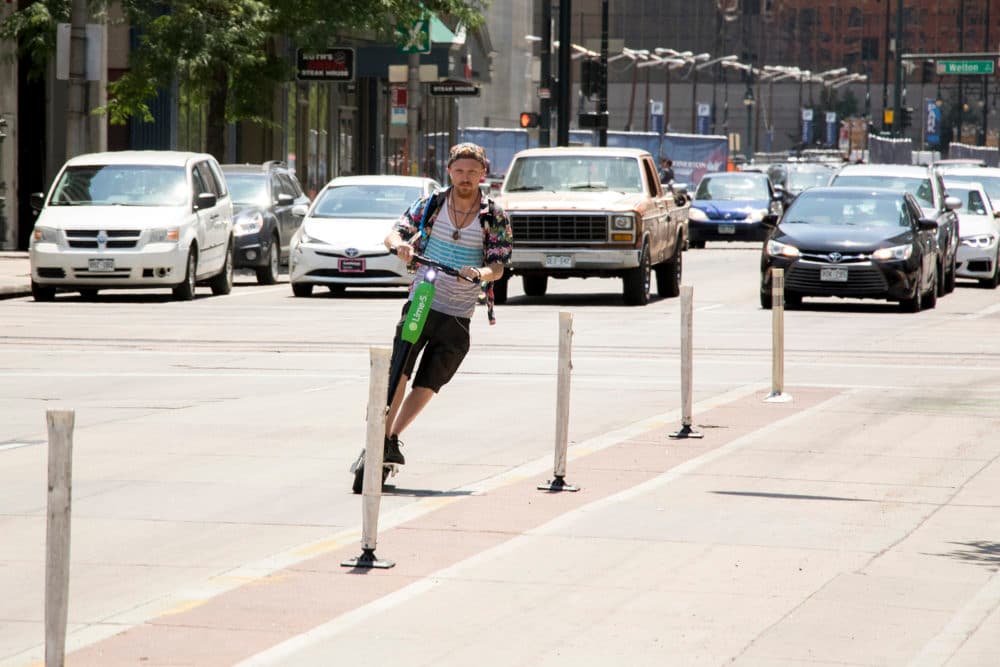It's like the battery-powered rapture is upon us, but it's only temporary.
Lime, the dockless scooter company, is removing its electric two-wheelers from Denver's streets, but the company plans to deploy its fleet again in about two weeks. Its competitor, Bird, also seems to have removed its vehicles.
Last week, city workers confiscated hundreds of scooters that were reportedly obstructing sidewalks and other public areas. City officials also announced that they would create a "pilot program" to regulate dockless vehicle companies like Lime and its competitor, Bird.
Lime will be working with the city on the new rules during its timeout, the company said in a statement today. "We appreciate the DPW for their efforts, and hope to return to Denver soon," the statement read. "We are eager to continue to serve Denver residents and visitors with Lime as their affordable, sustainable transportation option.
As of 12:30 p.m. on Monday, there were no scooters available to me on the app. Bird's app also didn't show me any scooters. We've reached out to Bird for comment.
Update: In a press release Tuesday, Bird said it intends to seek a permit to operate as part of Denver's pilot program. “We look forward to working with the City of Denver, a fast-growing city that shares our commitment to delivering innovative mobility solutions,” David Estrada, Bird’s chief legal officer, said in the press release. “The innovative pilot program has the potential to be a model of how to bring low-cost, environmentally friendly transportation solutions to communities across the nation.”
Meanwhile, check out Ashley's summary of the debate. While plenty of people are annoyed by the scooters strewn about (and riders on the sidewalk, and riders in the street, and riders in the bike lane), others see an elegant way to get people moving around downtown.
Council members Mary Beth Susman and Kendra Black suggested that the city might create corrals where the bikes could be stored, and the companies also say they're trying to encourage people to park their scooters more responsibly.
If you ask me, this adds up to a pretty savvy strategy by the companies: Their splashy, controversial debut attracts a lot of attention. Then, riders start to see the benefits -- and soon the pressure's on the city to figure it out.
I'm guessing that this is happening a heck of a lot quicker than a traditional rules change or pilot program, especially on a topic that has been fairly divisive.
Lime and Bird reportedly are the fastest U.S. startups ever to reach a $1 billion valuation. Meanwhile, San Francisco also is drawing up regulations, and Uber and Lyft both may launch scooter fleets.













